Gardening enthusiasts often find solace and joy in nurturing their plants, but the presence of pests can quickly turn this joy into frustration. Fortunately, nature offers a solution in the form of insect-repelling plants. By strategically incorporating these plants into your garden, you can effectively fend off unwanted insects while enhancing the beauty and diversity of your outdoor space. Here’s a comprehensive guide to 11 plants renowned for their natural insect-repelling properties, along with the specific pests they deter.
1. Basil (Ocimum basilicum)
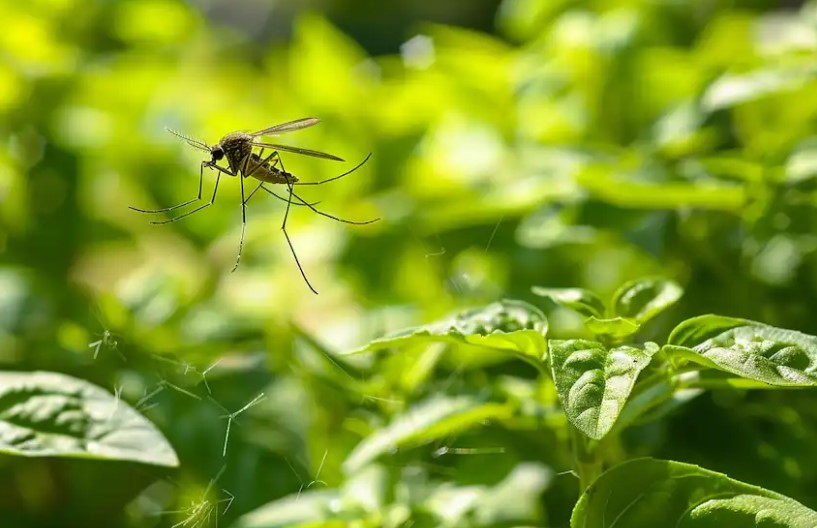
Insects Repelled: Mosquitoes, house flies
Basil emits a fragrance that mosquitoes and house flies find particularly offensive. Plant basil in pots near doorways or in the garden alongside tomato plants to enjoy a pest-free environment.
2. Lavender (Lavandula)
Insects Repelled: Moths, fleas, flies, mosquitoes
Lavender’s soothing scent for humans acts as a deterrent for several insects. Its versatility means you can grow it in the garden or use dried lavender to protect wardrobes and linen closets.
3. Lemongrass (Cymbopogon)
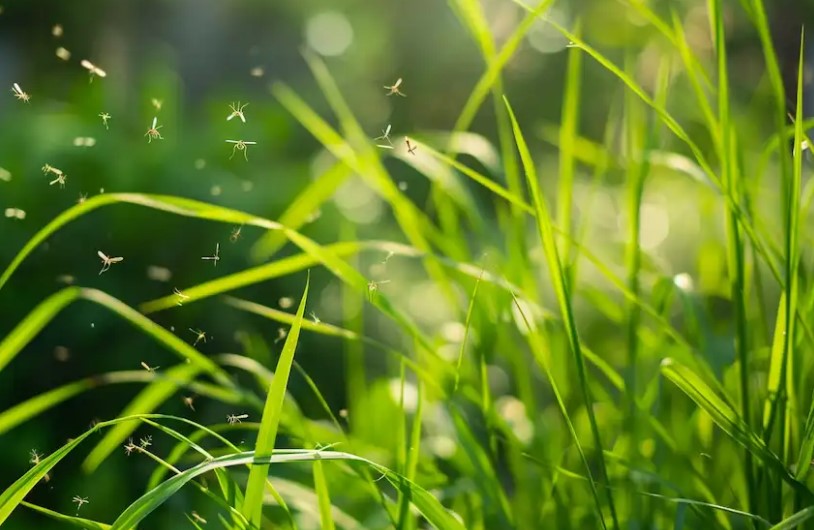
Insects Repelled: Mosquitoes
Lemongrass contains citronella, a natural oil found in commercial mosquito repellents. Plant it in large pots around seating areas to create a mosquito-free zone.
4. Marigolds (Tagetes)
Insects Repelled: Mosquitoes, aphids, rabbits
The pungent smell of marigolds repels mosquitoes and aphids. They also deter rabbits. Plant marigolds along garden borders for their protective benefits.
5. Mint (Mentha)
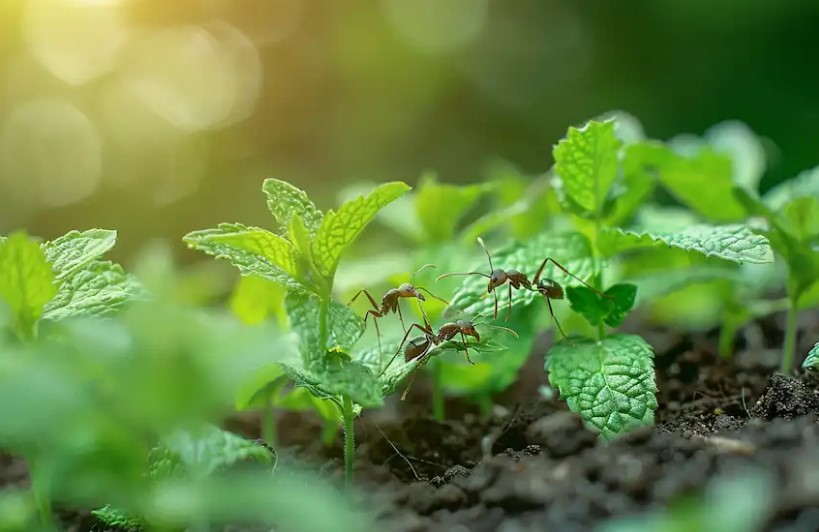
Insects Repelled: Mosquitoes, ants, mice
Mint’s strong scent is disliked by mosquitoes and ants. Be cautious, as mint can be invasive; consider planting it in pots to control its spread.
6. Catnip (Nepeta cataria)
Insects Repelled: Mosquitoes, ants, cockroaches
Research shows that catnip is more effective than DEET in repelling mosquitoes. Its easy growth makes it a garden favorite, but be prepared for visiting cats!
7. Chrysanthemums (Chrysanthemum)
Insects Repelled: Roaches, ants, Japanese beetles, ticks, silverfish
The compound pyrethrin, found in chrysanthemums, is used in many insect repellents and controls a wide range of insects.
8. Garlic (Allium sativum)
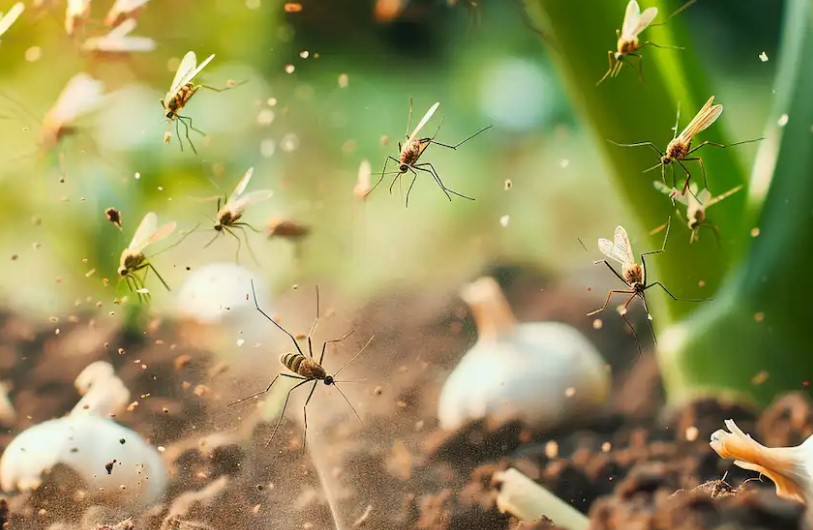
Insects Repelled: Aphids, mosquitoes, cabbage moths
Planting garlic around the garden acts as a barrier against aphids, mosquitoes, and cabbage moths, protecting your vegetables and flowers.
9. Rosemary (Rosmarinus officinalis)
Insects Repelled: Mosquitoes, carrot flies, cabbage moth
Rosemary’s woody scent repels garden pests while attracting butterflies. It’s ideal for container gardening or as part of a culinary herb garden.
10. Petunias (Petunia)
Insects Repelled: Aphids, tomato hornworms, asparagus beetles
Often called “nature’s pesticide,” petunias repel a variety of insects. Plant them in sunny spots near vegetable gardens or in hanging baskets.
11. Citronella Grass (Cymbopogon nardus)
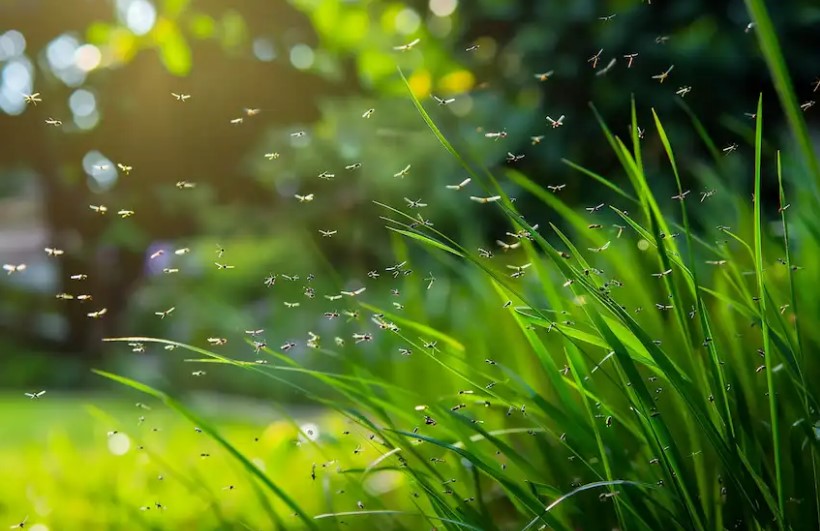
Insects Repelled: Mosquitoes
While citronella candles are a popular mosquito repellent, growing the plant itself can offer localized protection. Best grown in large planters due to its size.
By integrating these insect-repelling plants into your garden, you can create a harmonious and pest-resistant environment while enjoying the aesthetic and practical benefits they offer. Whether you’re cultivating a vegetable patch, herb garden, or ornamental landscape, these plants serve as natural allies in the battle against garden pests. Embrace the power of nature’s defense and transform your garden into a thriving oasis of beauty and biodiversity.


